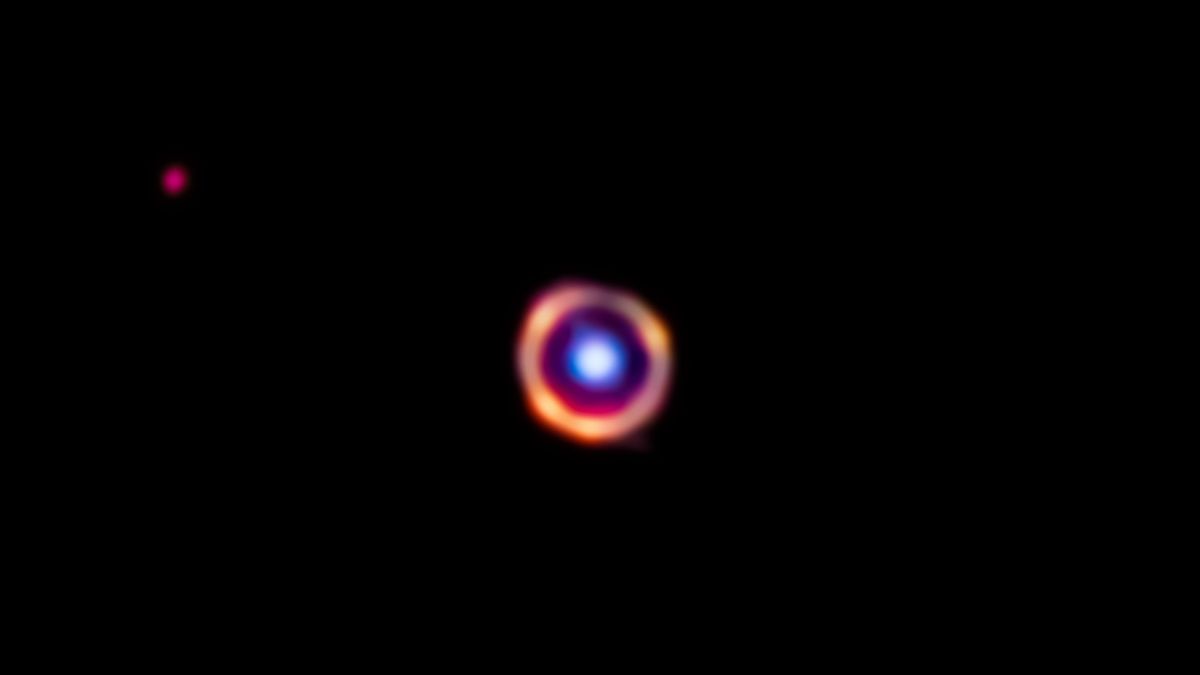Science
Related: About this forumJames Webb Space Telescope spies earliest complex organic molecules in the universe
By Charles Q. Choi published about 5 hours ago
The chemicals reside within a galaxy that formed when the universe was about 10% of its current age.

James Webb Space Telescope image of a complex organic molecules in a distant galaxy, shown as a blurry red ring around a light-blue splotch that is a foreground galaxy.
Astronomers using the James Webb Space Telescope discovered evidence of complex organic molecules similar to smoke or smog in the distant galaxy shown here. The galaxy, more than 12 billion light years away, happens to line up almost perfectly with a second galaxy only 3 billion light years away from our perspective on Earth. In this false-color Webb image, the foreground galaxy is shown in blue, while the background galaxy is red. The organic molecules are highlighted in orange. (Image credit: J. Spilker / S. Doyle, NASA, ESA, CSA)
Astronomers have detected the oldest known examples of complex organic molecules in the universe, a new study reports.
These chemicals — much like ones found in smoke and soot on Earth — reside within an early galaxy that formed when the universe was about 10% of its current age, according to the study.
The carbon-based molecules, technically known as polycyclic aromatic hydrocarbons, are found in oil and coal deposits on Earth, as well as in smog.
These complex organic molecules are common in space, where they are often linked to tiny dust grains. Astronomers investigate them because they can help reveal key details of activity within galaxies — for instance, they help influence the rate at which interstellar gas cools. However, detecting these molecules in very distant galaxies that formed when the universe was relatively young has been challenging, because telescopes were limited in their sensitivity and the number of wavelengths of light they monitored.
More:
https://www.space.com/james-webb-space-telescope-earliest-complex-organic-molecules
erronis
(16,842 posts)SETI - Search for Extraterrestial Intelligence. (https://en.wikipedia.org/wiki/Search_for_extraterrestrial_intelligence)
When they first started this experiment many of us thought it rather weird that we'd be looking for "intelligence" away from earth when we couldn't find it here.
I guess our little planet will show plenty of complex organic molecules when put under the microscope. Depending on when the sample is taken, it could be as the first molecules and very primordial organisms were being developed; it could be during one of the many cycles of growth and destruction; or it might be after we've reduced everything to inanimate.
eppur_se_muova
(37,398 posts)They are compounds of carbon, hence called "organic". This has nothing whatsoever to do with life.